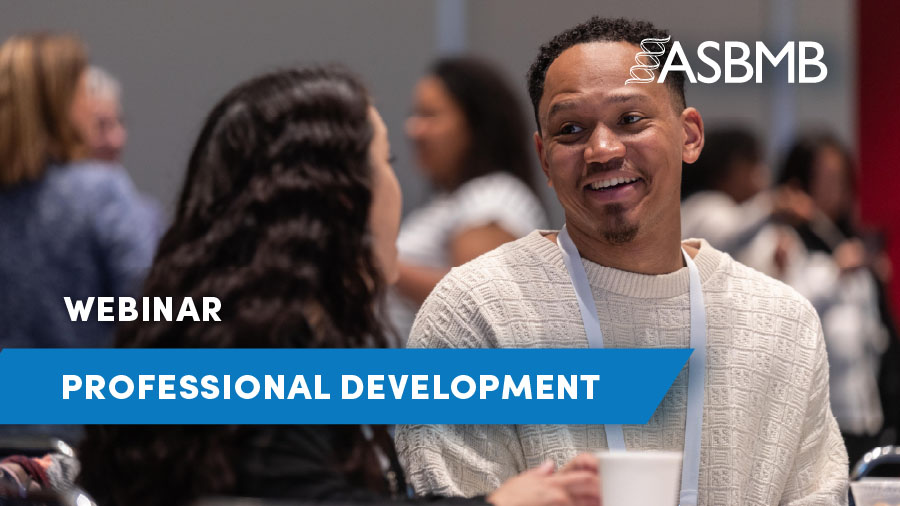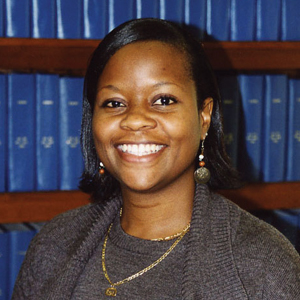Overcoming impostor syndrome
A friend and colleague shared with me a recent experience she had at a faculty awards ceremony. Her institution was awarding one of its highest honors, and while the citation was being read and the accomplishments of the winner listed, my friend’s colleagues were pointing at her and whispering, “This has got to be you.” Despite their reassurances and the plain facts of her extensive academic and service activities being read aloud, she refused to believe the award was for her. Later, she would reveal that not only did she feel that the award couldn’t have been for her but, perhaps more troubling, she felt that she didn’t deserve it.
This sense of not being worthy plagues many, particularly high achievers with CVs that tell a clear story of exceptional qualifications and accomplishments. The sense of unworthiness has a name – impostor syndrome – and is defined as a complex array of feelings characterized by a belief that one is incompetent and any achievements are in fact undeserved strokes of luck or other external factors. Although members of underrepresented minorities and women suffer from impostor syndrome in high proportions, the syndrome is pervasive and can affect anyone whose life experiences, including socioeconomic status, sexual orientation, religious beliefs, or other factors, make them feel like an outsider.

Since a seminal paper on impostor syndrome was first published by Pauline Rose Clance and Suzanne Imes in 1978, many books and articles have chronicled the struggles of successful, high-achieving individuals from professional spheres. Joyce Roché described her struggles with imposter syndrome in her book The Empress Has No Clothes: Conquering Self-Doubt to Embrace Success. Roché shared her journey as an African-American woman growing up in New Orleans who went on to become vice president of Avon and CEO of Girls Inc. In the book, she describes the deep-seated fear that she would fail and be revealed as undeserving of her achievements. Eventually, she developed coping strategies to dampen the inner voice that undermined her confidence, and she finally accepted that she had earned a seat at the table.
Roché’s story resonates with many minority professionals in STEM, particularly those in academia. While there have been gains in the number of underrepresented minorities that pursue undergraduate and doctoral degrees in STEM disciplines, the number of these graduates that matriculate into tenure-track faculty positions has not changed significantly in decades. The proportion of tenured full professors from underrepresented minorities still hovers around 5 percent. Similarly, while female graduate students outnumber their male counterparts in the biological sciences, their numbers lag behind when it comes to tenured professorships.
For underrepresented minorities, impostor syndrome can complicate an already challenging career path in which isolation and the pressure of representing an entire race or gender are already in play.
Further seeds of doubt can be planted by seemingly well-meaning individuals. I often reflect back on a graduate school interview during which a faculty member told me that despite my strong academic record I would have to work twice as hard as other students because “all of the other black students” have to work harder. Similarly, after being awarded a Howard Hughes Medical Institute predoctoral fellowship, I was told by a mentor that “they always pick one black student,” so I should feel lucky to have been picked. Statements like these can trigger periods of self-doubt and isolation, particularly during challenging times like preparing for a qualifying examination, revising a grant application, reviewing student evaluations, or navigating the promotion and tenure process.
All of this can be compounded further by stereotype threat, a phenomenon studied extensively by Claude M. Steele, professor of psychology and executive vice chancellor and provost at the University of California, Berkeley. Steele found people feel at risk of confirming negative stereotypes about their social groups, such as the stereotypes that women are bad at math and that African-Americans are less intelligent.
So how does one develop mechanisms to cope with the feelings of impostor syndrome? There is no one-size-fits-all answer, but the following strategies may help (National Science Foundation and Young, Valerie):
- Develop a network of colleagues and friends — take a page out of the book Every Other Thursday: Stories and Strategies from Successful Women Scientists by Ellen Daniell, which describes the instrumental role a support group can play in career trajectories.
- Speak about your fears with a mentor, partner or therapist or in a journal. Voicing your fears, doubts and concerns with a trusted individual may provide objective clarity.
- Share your achievements and accomplishments – celebrate publications, funded grants, defenses and awards.
- Accept compliments and accolades. Don't diminish the impact of well-wishes from friends and colleagues by dismissing them as luck.
- Don’t give power to assumptions others make about you. Stereotypes are pervasive and applied to every population. Try not to let the opinions of others undermine your goals.
- Seek out low-risk opportunities to act like you are more confident than you feel — a course lecture or departmental research seminar can be the motivational spark needed to allay self-doubt.
- Give yourself the right to make mistakes and to say no. Avoid saying yes to committee service merely to diversify the group.
- Keep a healthy sense of humor and perspective. Sometimes the hoop you have to jump through is moving … and on fire.
- Assess your strengths and challenges holistically. Ponder the source of your feelings of inadequacy. Perhaps they are rooted in a need for a more fulfilling existence.
- Reframe failures as opportunities for growth – “unscored” simply means that the leap to “funded” will be greater.
- Don’t lose touch with your authentic self – regularly reflect on your personal definition of success and seize opportunities to change your path.
Enjoy reading ASBMB Today?
Become a member to receive the print edition four times a year and the digital edition monthly.
Learn moreFeatured jobs
from the ASBMB career center
Get the latest from ASBMB Today
Enter your email address, and we’ll send you a weekly email with recent articles, interviews and more.
Latest in Careers
Careers highlights or most popular articles

Upcoming opportunities
ASBMB's PROLAB award helps graduate students and postdoctoral fellows spend up to six months in U.S. or Canadian labs.

From humble beginnings to unlocking lysosomal secrets
Monther Abu–Remaileh will receive the ASBMB’s 2026 Walter A. Shaw Young Investigator Award in Lipid Research at the ASBMB Annual Meeting, March 7-10 in Washington, D.C.

Chemistry meets biology to thwart parasites
Margaret Phillips will receive the Alice and C. C. Wang Award in Molecular Parasitology at the ASBMB Annual Meeting, March 7-10 in Washington, D.C.

Decoding how bacteria flip host’s molecular switches
Kim Orth will receive the Earl and Thressa Stadtman Distinguished Scientists Award at the ASBMB Annual Meeting, March 7–10, just outside of Washington, D.C.

Defining JNKs: Targets for drug discovery
Roger Davis will receive the Bert and Natalie Vallee Award in Biomedical Science at the ASBMB Annual Meeting, March 7–10, just outside of Washington, D.C.

Upcoming opportunities
No matter where you are in your career and what future path you aspire to, everyone needs leadership skills. Join ASBMB for practical strategies for building and practicing leadership skills.

